New Delhi : The Vice President, M. Venkaiah Naidu today highlighted the importance of preventive measures to address the huge burden of genetic diseases like thalassemia and sickle cell anemia in the country. He wanted the states to undertake mass screening of the children for early identification and management of genetic disorders.
Addressing a gathering after inaugurating the Research Laboratory, Advanced Diagnostic Laboratory and 2nd Blood Transfusion Unit at the Thalassemia and Sickle Cell Society (TSCS) in Hyderabad today, the Vice President urged the private sector and NGOs to complement the government’s efforts in combating genetic diseases. Recognizing that the available treatment options for these genetic conditions– bone marrow transplantation or regular blood transfusion – are cost intensive and distressing to the child, Shri Naidu called for a comprehensive approach to address the health challenge of Thalassemia and sickle cell anemia.

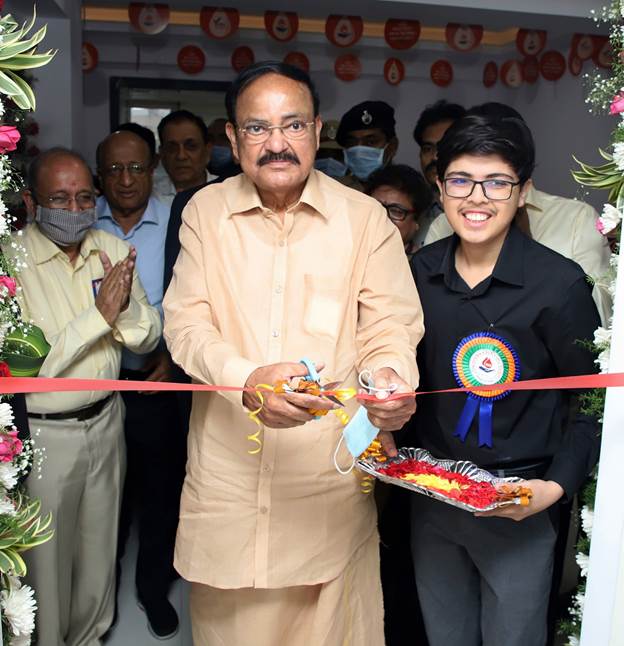

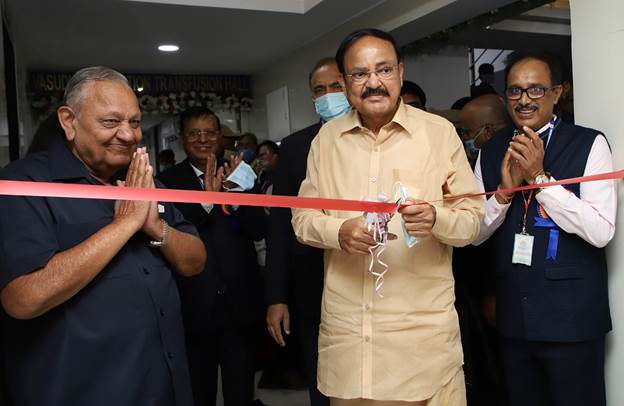

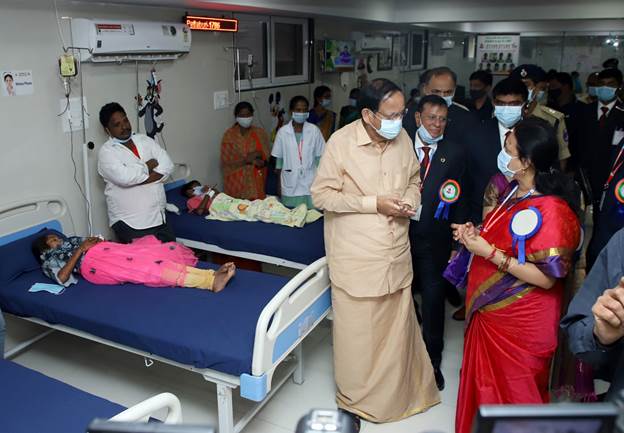

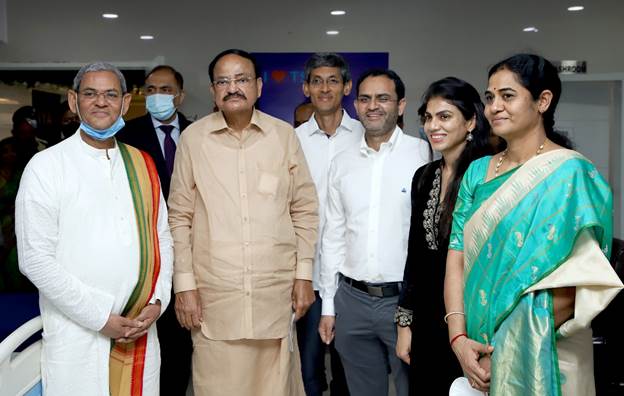

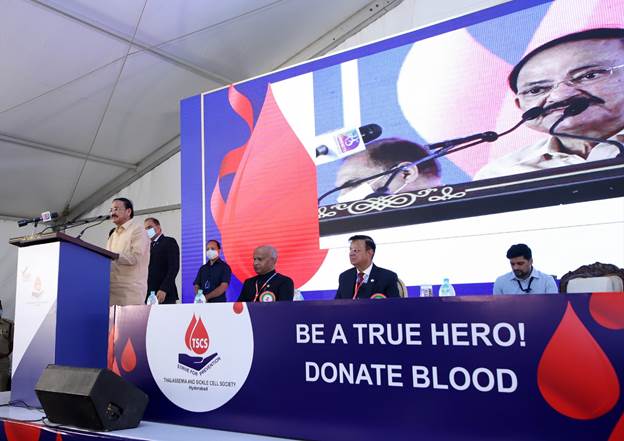

The Vice President at Thalassemia and Sickle Cell Society in Hyderabad today
Mentioning that around 10-15 thousand babies are born every year with Thalassemia in India, the Vice President said that lack of awareness on these genetic diseases is a major impediment in their prevention and early diagnosis. Therefore, he urged all stakeholders – doctors, teachers, public figures, community leaders and media – to spread awareness on Thalassemia and sickle cell disease. Complimenting TSCS for providing free treatment to patients suffering from these genetic diseases, Shri Naidu wanted the private sector to set up more diagnosis and treatment facilities, especially in tier two and three cities and rural areas to make healthcare accessible to all.
Describing gene disorders a major health concern in the country, the Vice President said that they impose a heavy economic and emotional burden on the affected families. Statistics show that prevalence of beta- Thalassemia is in the range of 2.9 to 4.6% in India whereas sickle cell anemia is more prevalent among lower socio-economic sections of society, ranging from 5 to 40 % among the tribal populations. He said that early detection of genetic disorders will help in counseling the patients, thus avoiding marriage of two individuals who are silent carriers of defective genes which may lead to serious genetic abnormalities in their children.
Noting that children affected with Thalassemia need regular blood transfusions throughout their life, Shri Naidu exhorted the youth to come forward and donate blood for the needy. He also appreciated the Union Health Ministry for coming up with detailed guidelines for prevention and management of Thalassemia, Sickle cell anemia and other variant anemia.
Observing that the country has seen considerable improvement in various health indices since independence, the Vice President said that still there are challenges in ensuring quality and affordable healthcare for all. Stressing the need to address the shortage of trained human resources in healthcare on war footing, he suggested making rural service mandatory for young doctors before getting admission to PG courses. “Scaling up e-Health initiatives in rural areas using digital tools is another cost effective method for making healthcare accessible to all,” he added.
Referring to the problem of high out-of-pocket expenditure on health, Shri Naidu said that it adversely affects the low-income households that face the risk of being pushed into poverty. Highlighting that quality and affordable healthcare is an important aspect of governance, Shri Naidu said that it should be accorded top priority by the Center, states and local bodies. He praised the Government’s flagship scheme ‘Ayushman Bharat’ for helping many poor families and stressed that providing quality and affordable healthcare is a shared responsibility of the public and private sector.
The Vice President praised the members of Thalassemia and Sickle Cell Society for their noble work towards eradicating these diseases from the country. Stating that ‘share and care’ is the core of Indian philosophy, he wanted everyone to inculcate the values of service mindedness and concerns for others, particularly for weaker sections. “Serving the poor is serving the God,” he stressed. On this occasion, Shri Naidu also inaugurated the Main Auditorium and Mini Auditorium at TSCS.
Shri Chandrakant Agrawal, President, Thalassemia and Sickle Cell Society, Smt. Ratnavali K., Vice President, TSCS, Dr. Suman Jain, Chief Medical Research Officer and Secretary, TSCS, Ms. Azra Fathima, Clinic Psychologist, TSCS, donors of the Society, doctors, and other eminent personalities attended the event.

Comments are closed.